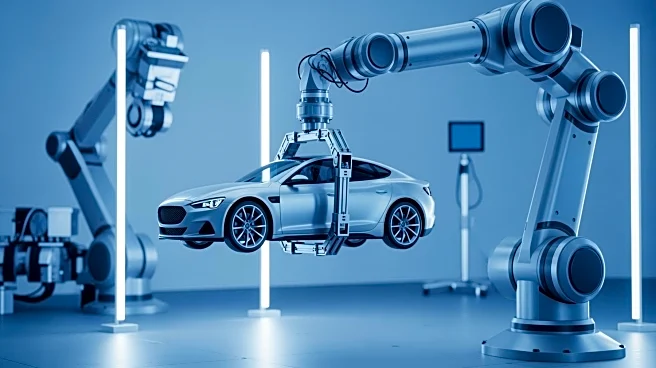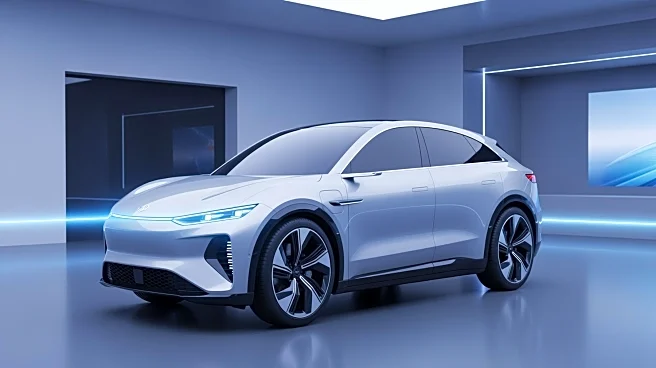What's Happening?
Tesla has reportedly decided to forego introducing new mass market models, focusing instead on autonomous cars and humanoid robots. The company has not launched a new model since the Model Y in 2020, with the Cybertruck facing sales challenges. Tesla's
strategy involves treating its vehicles like smartphones, with incremental updates rather than major redesigns. Industry analysts express concern over Tesla's neglect of its core car business, suggesting risks for investors and questioning the sustainability of growth without new models. Despite criticism, Tesla continues to prioritize software updates and autonomous technology over traditional automotive development.
Why It's Important?
Tesla's strategic shift could have significant implications for the automotive industry, challenging conventional practices of regular model updates and redesigns. By focusing on autonomous technology and robots, Tesla aims to redefine its market position and influence industry trends. This approach may impact investor confidence and customer loyalty, as traditional automakers continue to introduce new models. Tesla's emphasis on software and technology over hardware could lead to changes in consumer expectations and competitive dynamics, affecting market share and profitability.
What's Next?
Tesla's focus on autonomous cars and robots suggests potential advancements in these areas, with implications for transportation and labor markets. The company may face increased scrutiny from investors and analysts regarding its ability to sustain growth without new models. As Tesla navigates this strategic shift, it may encounter challenges related to regulatory compliance, technological development, and market acceptance. The company's future actions will likely influence industry standards and consumer preferences, shaping the evolution of electric and autonomous vehicles.
Beyond the Headlines
Tesla's move towards autonomous technology and robots raises ethical and societal questions about automation and its impact on employment. The development of humanoid robots and autonomous vehicles could lead to significant changes in labor markets, with potential job displacement in driving and related sectors. Additionally, Tesla's strategy highlights the cultural shift towards technology-driven solutions, influencing consumer behavior and expectations. Long-term, Tesla's focus on innovation may drive advancements in AI and robotics, reshaping industries beyond automotive.
















